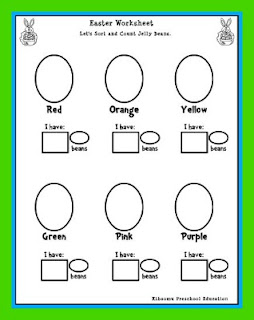 In many preschools, child care centers, and kindergartens, young children spend their time on worksheet paper and pencil tasks. Teachers who use worksheets believe they are demonstrating children's learning progress to parents.
In many preschools, child care centers, and kindergartens, young children spend their time on worksheet paper and pencil tasks. Teachers who use worksheets believe they are demonstrating children's learning progress to parents.
Cognitive DevelopmentMost preschool and kindergarten children are in what Piaget described as the preoperational stage of cognitive development. Letters and numerals typically mean little to the three- to six-year-olds in this stage. These children use concrete rather than abstract symbols to represent objects and ideas (Bodrova & Leong, 1996). Through pretending, children develop the ability mentally to represent the world (Bredekamp, 1987; Stone, 1995). Reading
Physical DevelopmentChildren are born with a need to move (Kostelnik, Soderman, & Whiren, 1993). They wiggle, toddle, run, and climb as naturally as they breathe. When we insist that children sit still and do what for them may be a meaningless task, such as completing a workbook page, we force children into a situation incompatible with their developmental needs and abilities. When children cannot or will not do such a task, we may label them "immature" or "hyperactive." We may complain about their short attention span, or as in
Social DevelopmentTeachers who require young children to perform passive tasks like worksheets may be heard exhorting them, "Do your own work. Eyes on your own paper." There are few situations in the adult world in which we cannot ask a friend or colleague for help with a task, or for their ideas about a problem.
Developmentally Appropriate ActivitiesThere are many active, and far more interesting, ways for children to begin understanding words and numbers than via worksheets (Mason, 1986). A classroom with a developmentally appropriate curriculum is a print-rich environment. The walls are covered with signs naming objects, stories children have dictated, lists of words they have generated, pictures they have painted and labeled, and charts of classroom jobs (such as feeding the pet and passing out napkins for snack).












